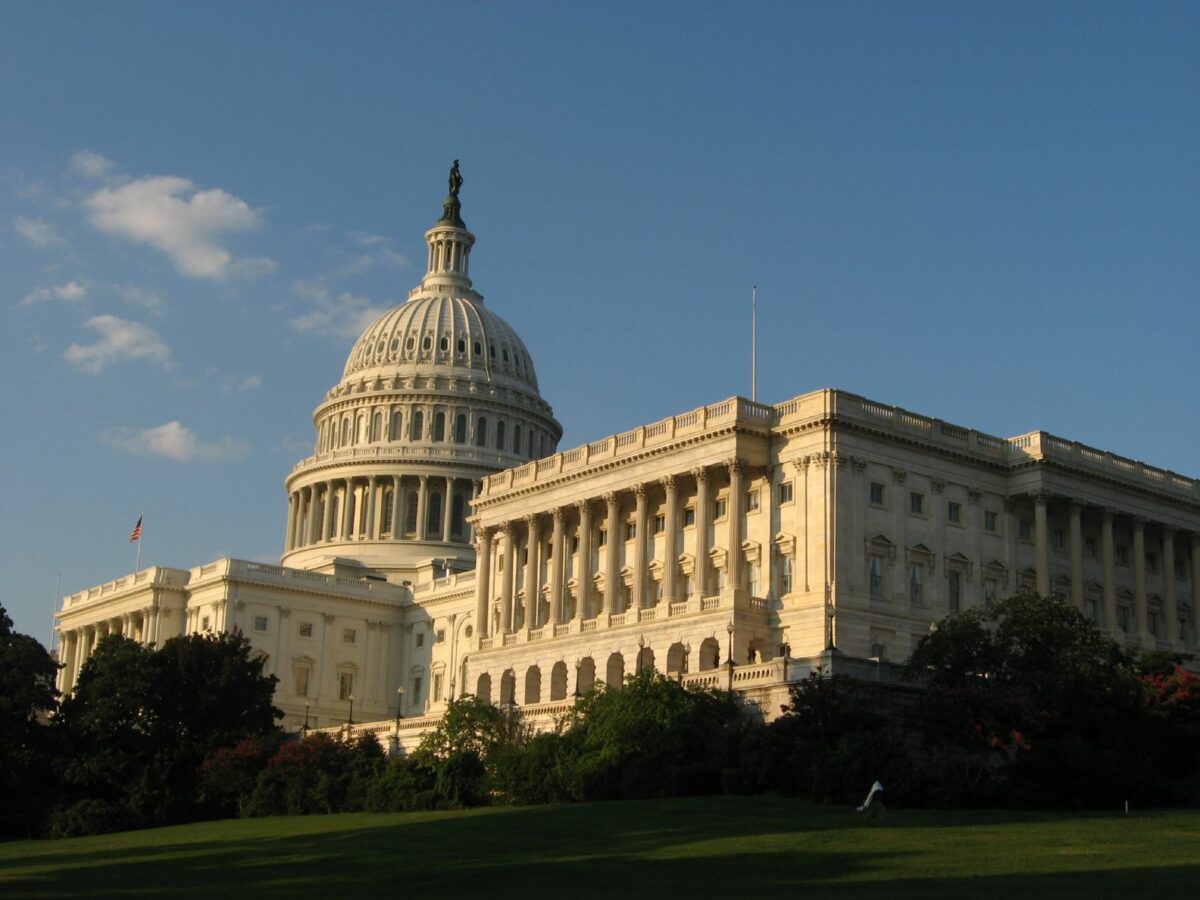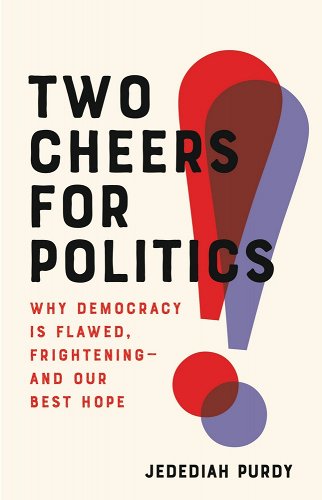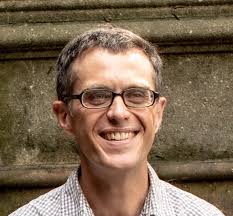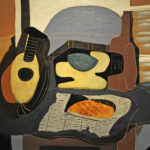Brooklyn, NY. A harried ex-spy in an early John Le Carré novel recalls a lesson from a mentor: “What is important is seldom urgent. Urgent equals ephemeral and ephemeral equals unimportant.” In Two Cheers for Politics, Jedediah Purdy invites his readers to turn from the ephemeral to the important. Purdy names the crisis facing American public life—he calls it “antipolitics”—and charts a democratic alternative. Purdy is always a writer worth reading, and here he interprets our times with sharp insight and surprising hopefulness. Yet, reading Two Cheers, I kept feeling that something was missing, as if the title of the book reflected its own qualities as much as the qualities of democracy itself.
By “antipolitics” Purdy means a mood of “political nihilism.” If politics is a common life steered by common decisions, antipolitics means accepting, even reveling in, a common life that drifts. Purdy sees antipolitics in the “politics-as-entertainment trolling of the Trumpist right” as well as in the temptation felt among Trump’s opponents to “[cut] ties of common fate with people, regions, histories that you have decided are irredeemable.” Whether “drunk on conflict” or “[d]rained of it,” our most obvious (and ostensibly urgent) political options foreclose collective responses to our hastening social and ecological ills. “Antipolitics,” Purdy declares, “is killing us.”
Purdy’s central claim recalls Le Carré’s bon mot: although our antipolitical mood has flared into a political emergency, dealing with that emergency will require deep, and therefore patient, changes in how we think about and engage in public life. Antipolitics is entrenched in America, Purdy argues. Our Constitution resists amendment, depriving the living of a say about government’s structure; our political culture prizes consensus, teaching that only people who already agree can live in political community; our fealty to the unfettered market removes from political decision-making huge and consequential portions of the way we live. Thus, Purdy writes, the “scope and intensity of political conflict” is curtailed, we come to take for granted a dessicated public life, and the “conceit that we can do without politics” starts to feel like common sense.
Purdy proposes that the best way for Americans to repoliticize our polity is to democratize it. Defining democracy as “rule by equals,” he calls for widespread voting rights, an easy constitutional amendment procedure, the elimination of institutional barriers to majority rule, and an economy oriented toward security for all rather than meritocratic inequality. Duly reformed, he argues, representative democracy in an industrial and technological society need not be a “chastened” and “uninspiring” echo of classical direct democracy. It could be, in a sense, more direct than direct democracy: whereas only a hardy few attended the Athenian citizens’ assembly, Purdy’s democratized democracy would make voters of all adult members of society—and, just as important, would make their votes worthwhile.
This is an appealing vision. Yet, oddly, in a book calling for a democratic revival of politics, Purdy never explains why democracy is the form of politics we should pursue. Democracy means political equality, yes. But why should we want equality? It’s not that Purdy has no answers. The problem is that he suggests two contrary ways to justify egalitarianism. It’s as if he operates according to two theories of politics, and whenever his argument requires him to either reconcile them or pick a side, he falls silent.
In what we might call Purdy’s official theory, which he traces to Thomas Hobbes, politics is an act of will: “The core question of politics is who has the power to make a shared world.” Note the verb: politics doesn’t begin with something that’s there already; it makes, or, as Purdy puts it elsewhere, it authors, it creates. In this way of thinking, a certain appreciation for equality is plausible: equally fearful of one another’s willfulness, we make peace.
This theory dominates Two Cheers. Writing about representative democracy, Purdy limits his attention to voting and its consequences, thus reducing citizenship to the expression of one’s will, the assertion of one’s share of power. Writing about equality among voters, he chooses words more telling than he may intend. We shouldn’t suppose, he points out, that only the marginal voter decides an election; however many votes were cast for my candidate, mine was among them. “It would be a little much to say, ‘I elected Biden in Georgia,’” Purdy muses, “but I would warrant that most of those voters understand that they are part of a majority in which nearly every bit counted.” Emphasizing the aggregate is a sensible way to think about electoral mathematics. But Purdy has let something slip: in the Hobbesian vision of politics, the ideal would be for me to make the political decisions (“I elected Biden”), and I can accept egalitarian rule insofar as it mimics that ideal. The problem with this kind of egalitarianism, in other words, is that at its heart it’s not egalitarian.
Accordingly, when Purdy presents his program for reforming American politics, he writes exclusively about the institutions of national government. If I think that politics is the willful assertion or even imposition of power, then the most powerful institutions are the ones I will want to think about. Just as Purdy’s democratization agenda neglects roles that citizens might play outside the voting booth, so it neglects politics outside the state. Such an agenda leaves the citizen at loose ends: I mostly like Purdy’s proposals for constitutional and electoral reform, but these ambitions are on such a grand scale that to ask how I could help bring them about is to remind myself of how powerless I currently feel.
Worse, Purdy’s Hobbesian paradigm requires him to muffle some of his most interesting insights. In one of Two Cheers’s most fascinating passages, Purdy teases apart the “disfigure[d]” views of democracy that reflect and exacerbate the antipolitical mood. Majority rule, he notes, depends on our acceptance of “synecdochal representation,” the principle that the winners of the election rule on behalf of the whole, including the losers. But Americans often opt instead for the “tribal” stance of “aversive partisanship” (“they on the other side cannot act on behalf of us”) or the “hyperindividualistic” attitude that “voting is an expression of personal identity, as subjective as a consumer choice” (“Not my president!”). Beyond tribalism and hyperindividualism, Purdy writes, lies the prospect of “civic virtue.” Civic virtue, it turns out, is indispensable to his democratic vision. Yet his official theory denies him the means of exploring citizens’ inner lives, leaving him with almost nothing to say about how civic virtue might be fostered.
Almost nothing—but not quite. Shortly after invoking the idea of civic virtue, Purdy declares: “Democracy depends on solidarity and, to survive, must generate solidarity, over and over…. It requires… the willingness to ‘fight for someone you don’t know,’ to defend the lives and interests of those very different from you.” The phrase Purdy quotes here, from a 2019 Bernie Sanders speech, calls for a kind of solidarity suited to a nation of strangers, but his gloss on the quotation points elsewhere: “those very different from you” might well be people you do know. A bit earlier, in a paragraph portraying unauthorized immigrants as “participants in American life,” he had suggested as much: “They are easily exploited, to the convenience of employers large and small, from the farms of California’s Central Valley and the chicken plants of the Southeast to food delivery in Manhattan and housekeeping in San Francisco.” Purdy never spells out reasons why a legal citizen might find solidarity with unauthorized immigrants, but the vivid particularity of that sentence might leave a reader thinking: These are my neighbors. I know their faces and might someday know their names.
Only in Two Cheers’s final pages, as the book reaches its rhetorical crescendo, do these hints blossom into something like an argument. Democracy, Purdy writes, ought not be “a politics of amnesia or ingratitude”: it depends on “legacies from the past” and on our “love [for] what is familiar.” Invoking lovers of the familiar like George Orwell and Wendell Berry, Purdy acknowledges that a democrat may need to be a “liberal-conservative-socialist”—even, at times, with emphasis on the “conservative.”
These notions of gratitude and familiarity, alien to Purdy’s official theory but clearly important to Purdy himself, sit outside the main current of his book’s argument. Scarcely anything in Two Cheers’s first 240 pages prepares a reader for a peroration like this: “A vital democracy weaves political revolution into the more ordinary rhythms of life: voting in elections but also reflecting about parenthood or one’s religious tradition, engaging in strikes and rallies but also having conversations with family and friends about the country’s history or the mood of the neighborhood.”
Purdy’s official theory, the one he presents openly, cannot show us why we should value equality or where solidarity or civic virtue come from. His second theory, the one that remains half submerged, can—but only by contradicting the first. In that second theory, civic virtue depends on knowing where you live and who else lives there and what they do during their days. Solidarity begins with people you know, even if you don’t know them well, and even if it may need to reach beyond them. Commitment to equality stems from seeing another’s face and knowing that other as a fellow. And so the alternative to antipolitics must have to do less with authoring something new than with tending something real, less with will than with receptivity; it must involve a face-to-face public life where one is able to recognize a neighbor as a neighbor.
Purdy has a palpable affection for what he calls “the preservative work of being together.” Beginning again from that affection might allow Purdy and his readers to find a fuller “response to political nihilism,” to listen for the voice that Two Cheers is wanting.









4 comments
Geoff Kurtz
Thanks, Russell. Yes, I can see how the writers you mention could fit into this line of thinking. Maybe Jane Jacobs, too? (Your word “dance” brings her to mind.)
Russell Arben Fox
Solidarity begins with people you know, even if you don’t know them well, and even if it may need to reach beyond them. Commitment to equality stems from seeing another’s face and knowing that other as a fellow. And so the alternative to antipolitics must have to do less with authoring something new than with tending something real, less with will than with receptivity; it must involve a face-to-face public life where one is able to recognize a neighbor as a neighbor.
That’s a powerful, provocative passage, Geoffrey. It puts me in mind of writings about urban life and the neighborly potential within “anonymity,” such as you find in Iris Marion Young and Nancy Rosenblum: these are people you know, because you see them, face-to-face, in the public realm, but you don’t actually know them, and there is a kind of dance around how much and what way a more intimate knowledge of them (and of oneself) is either desired or possible. If democracy is to be an antidote to the anti-political temptation, then clearly articulating a kind of affectionate knowing of one neighbors is central to its theory.
Rob G
Good review, Mr. Kurtz. The first question that popped into my head was, “Does Purdy engage with Tocqueville at all?” One would think that he would have something to say about all this.
Geoff Kurtz
Rob: A perceptive question! Not a topic I managed to fit into this review, as you noticed. I think it’s fair to say that although Purdy writes about Tocqueville (in this book & elsewhere), it doesn’t seem that he’s been much influenced by him. To me it seemed that Tocqueville’s presence-without-influence was one of the missed opportunities in this book, and I’d be interested to see Purdy write about (and, more to the point, engage) Tocqueville more in the future.
Comments are closed.